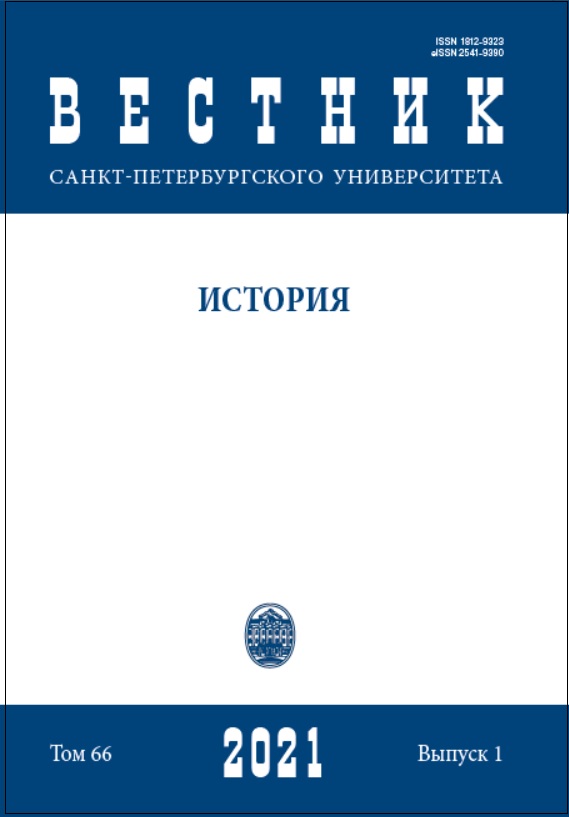Disintegration of the USSR in Historiography: Collapse or Dissolution
DOI:
https://doi.org/10.21638/spbu02.2021.108Abstract
For 30 years scientists of various sciences and fields have been studying disintegration with unflagging interest. As of August 1, 2020, more than 300 books, 3,000 articles, and 20 dissertations have been written in Russia alone. Generalization and critical analysis of this literature requires a monograph. But this task is so complex that for the time being the case is limited to historiographical articles. The purpose of this article is to identify the most popular points of view expressed by well-known experts on the problem of the disintegration of the Soviet Union. The analysis allows us to draw the following conclusions. The existing explanations can be divided into two large groups. The first one includes works whose authors consider disintegration as the product of a combination of random circumstances, external causes, and mistakes of party and Soviet leaders, and therefore focus on the study of, first, the role of subjective and external factors, and, second, on the short period of time, 1985–1991, immediately preceding the disintegration. The second group includes works whose authors consider disintegration as a natural result of long-developed processes, search for its historical background, study trends in the development of the Soviet Union and the Union republics, and look at the disintegration systemically and comprehensively. In other words, the former consider disintegration to be a random phenomenon generated mainly by the events of 1985–1991, while the latter consider it to be a natural phenomenon with deep historical, economic, political, cultural, and social prerequisites and causes.
Keywords:
domestic and foreign historiography, collapse of the USSR, prerequisites and factors of disintegration
Downloads
Downloads
Published
How to Cite
Issue
Section
License
Articles of "Vestnik of Saint Petersburg University. History" are open access distributed under the terms of the License Agreement with Saint Petersburg State University, which permits to the authors unrestricted distribution and self-archiving free of charge.





